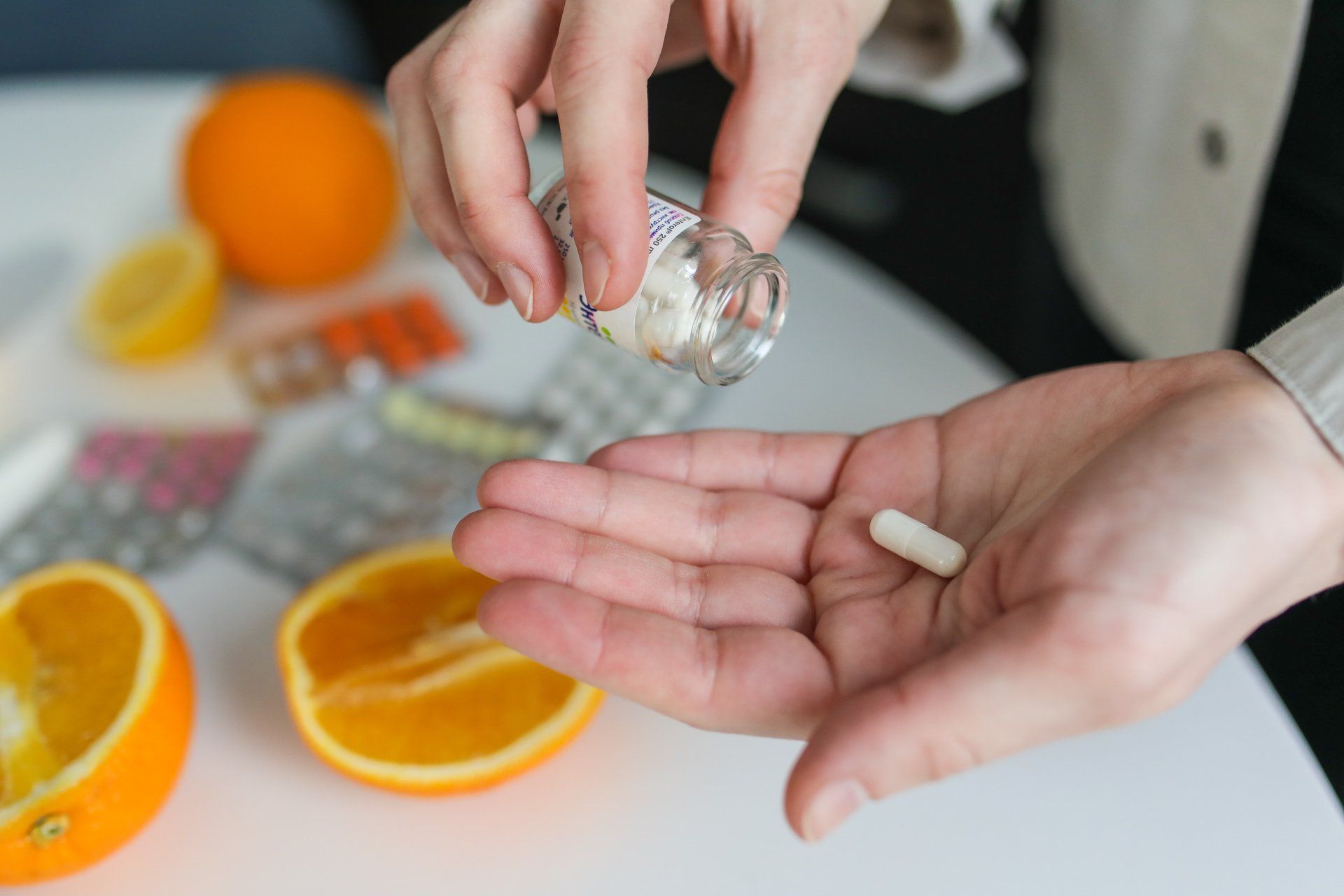ADHD Supplements: Are They Effective?
Stimulant medications are the first-line treatment for attention deficit hyperactivity disorder (ADHD). Common symptoms of ADHD include hyperactivity, impulsive behavior, and difficulty paying attention.

Recently, researchers have been investigating several different supplements that may help alleviate ADHD symptoms.
In this article, we outline the research into some of the more promising hormone, dietary, and herbal supplements for ADHD.
Hormone, vitamin, and mineral supplements
Research shows that people with ADHD often have lower levels of certain vitamins and minerals. Despite this, there is currently no conclusive evidence that mineral deficiencies cause ADHD.
In some cases, vitamin and mineral deficiencies are a consequence of ADHD medication. For example, stimulant medications can suppress appetite, which can lead to a decrease in a person’s nutrient intake.
Certain nutrient deficiencies may also worsen ADHD or cause symptoms that mimic the condition.
Researchers are investigating whether the following hormone, dietary, and herbal supplements are effective in treating ADHD:
Melatonin
Melatonin is a hormone that regulates the sleep-wake cycle. It might be useful for the subset of children with ADHD who experts believeTrusted Source experience sleep disturbances.
In many cases, sleep disturbances are a side effect of stimulant medications that doctors prescribe to treat ADHD. Stimulants work by increasing activity in both the brain and central nervous system.
Although this often improves ADHD symptoms, it can lead to the following sleep problems:
- difficulty getting to sleep and waking up
- waking up throughout the night
- daytime sleepiness
A 2019 studyTrusted Source investigated the benefits of melatonin in children with ADHD who developed sleep problems as a result of taking the stimulant methylphenidate. All 74 participants had different doses of melanin for at least 4 weeks.
The researchers used parental reports to determine treatment success. According to the reports, melatonin effectively improved sleep problems in 60.8% of participants.
Vitamin D
Vitamin D plays an important role in healthy brain development and function. Several studies have found a link between vitamin D deficiency and neurodevelopmental disorders, such as ADHD.
A 2018 studyTrusted Source compared vitamin D levels in children with and without ADHD. Those with ADHD had significantly lower levels of vitamin D in their blood and were also more likely to have a vitamin D deficiency.
In the second stage of the study, the researchers divided the children who were deficient in vitamin D into two groups. The participants in one group received an 8-week course of vitamin D supplements, while those in the other group received a placebo.
Children who received the supplements showed significant improvements in attention, impulsivity, and hyperactivity compared with children who received the placebo.
These findings suggest that vitamin D supplements may improve ADHD symptoms in children who are vitamin D deficient. However, further studies are necessary to confirm this theory.
Zinc
Zinc is an essential mineral that plays an important role in brain function.
Children who are deficient in zinc can experience symptomsTrusted Source similar to those of ADHD.
Examples include jitteriness, inattention, and delayed cognitive development.
Several studies have reported a link between zinc deficiency and ADHD in children. A 2015 reviewTrusted Source of these studies concluded that zinc supplements could help treat ADHD symptoms in children with zinc deficiency.
However, it is still not clear whether zinc has any effect on ADHD symptoms in children or adults who are not zinc deficient.
Iron
Iron is necessaryTrusted Source for the production of the brain chemical dopamine. Research shows that people with ADHD tend to have low levels of dopamine in the brain.
Some researchers suggest that iron deficiency may, therefore, play a role in ADHD. A 2018 reviewTrusted Source looked at 17 studies comparing iron levels in children with and without ADHD.
The review found that children with iron deficiency were more likely to have ADHD. Also, in children with ADHD, there was an association between iron deficiency and more severe ADHD symptoms.
These results suggest that iron supplements may be beneficial for iron-deficient children with ADHD. However, further studies are necessary to establish whether this is the case.
Omega-3 fatty acids
Omega-3 and omega-6 are essential fatty acids (EFAs) that play an important role in brain health. Omega-3 is especially important for protecting brain tissue and aiding communication between brain cells.
A 2017 review investigated the benefit of omega-3 and omega-6 in the treatment of ADHD in children and young adults.
The review included 16 randomized controlled trials. Participants in each of these trials received either an EFA supplement or a placebo.
In 13 of the trials, the participants who took the EFA supplements showed improvements in the following:
- attention
- visual learning
- short-term memory
- hyperactivity
- impulsivity
Importantly, a 2016 reviewTrusted Source suggested that children with ADHD tend to have an imbalance rather than a deficiency of EFAs. In general, they have a higher ratio of omega-6 to omega-3 fatty acids.
The authors of the review suggest that addressing this imbalance is more important than simply increasing the intake of EFAs.
Other natural remedies
The following herbal supplements are also under investigation as potential treatments for ADHD.
French maritime pine bark extract
Pine bark extract contains natural compounds called proanthocyanidins. The extract made from these compounds is commonly sold under the registered trademark brand name Pycnogenol.
According to a 2016 review, a small number of randomized controlled trials have found that pine bark extract may improve ADHD symptoms.
According to the review authors, pine bark extract is a powerful antioxidant that may work by reducing cell damage and improving blood flow to parts of the brain that play a role in ADHD.
However, further studies are necessary to support the use of pine bark extract as a treatment for ADHD.
Ginkgo biloba
Ginkgo biloba is an herb that derives from the leaves of the G. biloba tree. This herb contains chemicals called terpene trilactones. Research suggestsTrusted Source that these chemicals help protect against brain cell damage and increase the availability of dopamine in the brain.
In 2013, a small study investigated the effects of ginkgo biloba on childhood ADHD.
The study found that taking a maximum daily dose of 240 mg of ginkgo for 3–5 weeks improved ADHD symptoms. According to parental reports, children showed improvements in attention, hyperactivity, and impulsiveness.
However, this was a small study with only 20 participants and no placebo control. Well-controlled clinical trials are necessary to confirm the benefits of ginkgo for ADHD.
Although the study did not report any adverse effects of the herbal extract, the National Institutes of HealthTrusted Source list the following potential side effects:
As ginkgo is also a potential blood thinner, it may not be suitable for people with blood clotting disorders or those taking anticoagulant medications.
Summary
Many different types of supplement show promise as complementary treatments for ADHD. However, research into these supplements is still in its early stages.
Further clinical trials with more participants are necessary to get a better understanding of the effectiveness and safety of these supplements for ADHD.
This article originally published by MedicalNewsToday
Medically reviewed by Alan Carter, Pharm.D. — Written by Charlotte Lillis on July 29, 2019
Orange County Psychiatric Associates, in Mission Viejo, works with adolescents, and adults to enable them to live their lives to their fullest. Orange Coast Psychiatric Associates tailors treatments based on the understanding that both body and mind must be treated in order to promote better mental and physical health. Let us help you improve your quality of life with specialized care for you.




